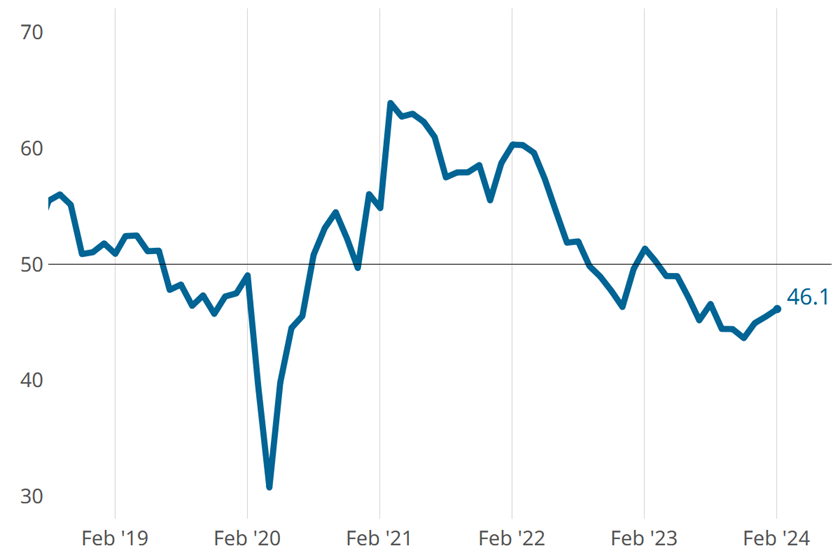Spotting an Achievement Gap
One of the toughest jobs supervisors face is getting across to their employees that results—not only good intentions —are what really count.
One of the toughest jobs supervisors face is getting across to their employees that results—not only good intentions —are what really count. Many people seem to have never absorbed the fact that they should take responsibility not only for what they do but for what happens as a result of what they do or don’t do.
Example: a supervisor tells one of his people to make sure that a particular job sent to another department for special coating is returned by the 17th of the month at the very latest.
Featured Content
The 17th comes and goes but no sign of the job. The supervisor checks with his employee, who shrugs, “I told them it was essential that we get it back no later than today.”
The supervisor’s first impulse may be to read the riot act to the offending department. But then he realizes that by doing so he is letting his employee off the hook. Instead, he says, “I’m sure you did tell them. But I told you to be sure the job came back on time. You didn’t do that.”
That’s a different message from the one the employee obviously expected, which was, “Okay, you’ve done all you could.” But next time he’ll be more likely to remember that his boss wants both action and results.
Make it clear to your people, therefore, that when they are asked to do something or have something done, they will be held accountable for the successful completion of the job, no matter who else is involved.
It could be one of the most important lessons of their lives.
Keep Your Boss Informed
In the world of business, information is gold. No boss ever has enough. Most often, though, he hears from his people about problems or trouble. Most bosses would enjoy being on the receiving end of something positive, or at least neutral, for a change.
What kind of information can a boss use? Some examples:
Copies of memos. Supervisors usually give some thought to whether the boss should view copies of memos sent to people outside the department. But they tend to overlook the possibility that the boss may be equally interested in memos to people within the department—if they are complimentary or discuss an unusual task or project. A copy of such a memo accomplishes two things: It gives the employee additional recognition and it links your name to a successful, out-of-the-ordinary action.
Employee comments, suggestions. Some supervisors relay complaints or suggestions from employees when they talk with the boss. Others, however, get better mileage by suggesting that the employee write a memo on the subject to be forwarded up the line. That way, they are able to offer solutions to problems raised or comment on the suggestion in their own covering note—giving (and gaining) recognition for the innovation and sense of involvement in their departments.
Articles. Usually it’s the other way around. The boss sends articles from magazines and newspapers to subordinates. But there is no reason why a supervisor can’t send his boss something he has found helpful or interesting. And the reading matter doesn’t have to be work-related—unless, of course, the boss plainly has no interest in outside issues. By the same token, mentioning an especially rewarding book can be a good idea.
A word of caution: With all the paper passing across his desk, no boss wants to be deluged with material that doesn’t interest him. This, therefore, is a place to exercise discrimination—while incidentally enhancing your image as someone who is alert to his interest.
Meetings. The boss should not become too familiar a fixture at departmental meetings. In fact, if you invite him too often, he may wonder what you do as a supervisor or how you perceive his schedule. Occasionally, though, when you anticipate an impressive show, tell your boss you think he’d find the time well spent and let him get direct exposure to what’s going on.
Spotting an Achievement Gap
We don’t live up to our full potential all the time. Nor should we be expected to. As a supervisor, however, it’s up to you to see that your people do not let the “achievement gap”—the difference between their potential and their performance—become too wide. When the gap exceeds reasonableness, you need to learn why in order to help employees close it. Here are some tips that should help.
When did it start? If you can determine when the gap became unreasonable, you will be in a better position to analyze it. Sometimes there are extenuating circumstances—a new employee, one getting on in years and so on. But between these extremes, pinpointing the specific starting time may be the key to the problem’s solution.
How big is it? When a gap turns into a chasm, it has clearly gotten out of control, possibly to the point of no return. That’s why it’s important to know just what you can expect of each employee and not allow a gap to keep growing.
Has it existed long? A habit of long standing is the most difficult kind to break. From a remedial point of view, therefore, it is best if the gap in an employee’s performance has not been allowed to exist very long. Early diagnosis is a big help. Besides, if employees realize that they are performing below par, but feel that you are condoning this behavior, they will not be so responsive to your suggestions for improvement. If a standard is lowered, knowingly or otherwise and is allowed to operate at that level for some time, it may become the accepted standard.
Is it getting larger or smaller? It’s vital to know whether the gap is widening or closing. Is this a steady process and in which direction? What is the likelihood of recovery?
Effect on others? Sooner or later, individuals who aren’t carrying their weight are resented by other members of the group, who may be forced to carry them. If their peers give up on them, it’s clear that you have been overly tolerant— that you have permitted your standard to slip from your grasp.
Do they know? Have you called it to their attention? Remember—you aren’t doing your employees a favor by letting them get away with minimal or substandard performance. You are setting the stage for eventual failure and dismissal. As a supervisor, this reflects badly on you. So let underachievers know the score…before it’s too late.


















